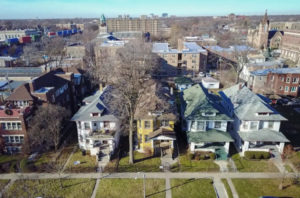It has been the law in Illinois that a person is not allowed to record conversations without the other person(s) consent. To do that was deemed to be “eavesdropping” and illegal under Illinois law. Illinois’ eavesdropping law was considered to be one of the toughest laws in the country. Two decisions by the Illinois State Supreme Court this month have changed that, declaring that the law is overbroad and unconstitutional.
One case, The People of Illinois v. Annable Melongo (Melongo) focused on a woman who recorded several telephone conversations she had with an Assistant Administrator of the Cook County Court Reporter’s Office, Criminal Division concerning a dispute over the accuracy of the transcript of her arraignment.
The Other case, The People of Illinois v. Deforest Clark (Clark) concerned Mr. Clarke using an eavesdropping device to record conversations. He was accused of recorded a conversation between himself and an attorney without her consent. He was also accused of recording a different conversation that he had with a judge and the same attorney, again without their consent.
Eavesdropping
In 1994 Illinois Supreme Court ruled in People v. Herrington, it is okay for one person in a conversation to record the conversation. The court noted there is no expectation of privacy between the people involved in the conversation.
In response, the Illinois legislature passed a law declaring that knowingly using an electronic listening devise to listen to or record a conversation, without the knowledge of ALL of the people involved is eavesdropping and illegal. This law applies to any conversation anywhere and at any time, with certain exceptions for law enforcement or criminal activities. The intent — to assure people that their conversations would not be recorded without their consent.
The Illinois State Supreme Court has ruled in both the Melongo and Clark cases that the 1994 rewriting of the eavesdropping law by the Illinois legislature is overbroad.
Overbroad
The United States Supreme Court has ruled that statutes which may deter or chill constitutionally protected speech are considered to be overbroad in nature. Challenges to laws based on overbreadth are permissible even by people whose conduct has been determined to be not protected. That standard has been set because of the chilling effect such laws have on innocent people not otherwise willing to bring such challenges to court for fear of punishment. Furthermore, in order to invalidate a law because it is overbroad, the overbreadth must be substantial.
It does not matter if the speech in either the Melongo or Clark cases is constitutionally protected because the law must be narrowly written so as to not punish people who would otherwise believe that they were not breaking the law.
In Melongo, the recordings were that of telephone conversations so as to have an accurate record of her attempt to correct what she believed to be an inaccurate official court transcript.
In Clark, one recording is that of a court hearing with no court reporter being present, the defendant believed it important to record the proceedings for record. The second recording is of a conversation with opposing council in the hallway of the courthouse for the defendant’s own personal information.
Expectation of Privacy
The Illinois State Supreme Court continued its focus on the expectation of privacy, just as it did in 1994, in determining if the current law was overbroad. The court determined in Melongo that based on their findings in the Clark decision the law criminalizes a wide arrange of innocent conduct and therefore the law cannot be sustained.
In Clark, the court concluded that persons involved in a public hearing where it is common to have a court reporter and where such records are of a public nature, could have no overbroad. The court also concluded that the recording of the attorney in the hallway of the courthouse also cannot be penalized because due to all of the people and foot traffic through the hallway, if an attorney truly wanted to keep a conversation confidential, they would not hold it in a busy hallway of a public building. For those reasons the court found that the law could not be upheld under scrutiny.
Conclusion
The court found that because the Illinois statute prohibited recording of ALL conversations without EVERYBODY’S permission without taking into regard the expectation of privacy is overbroad. The court found that making it illegal to record someone standing on the street corner yelling and screaming with clearly no expectation of privacy, or political speech in the public square with clearly no expectation of privacy, or interaction between a police officer and the general public in public, does not fit the standard of narrowly tailoring in order to not chill free speech, set forth by the United States Supreme Court when dealing with constitutionally protected free speech issues.
Until the Illinois legislature can craft a bill which provides for privacy in conversation without penalizing large areas of innocent activity, recording public and non-private conversations (conversations with no expectation of privacy) is most likely allowed in Illinois.




